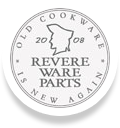This weeks eBay deal includes two of my favorite items – the square skillet and a skillet with egg poaching insert.
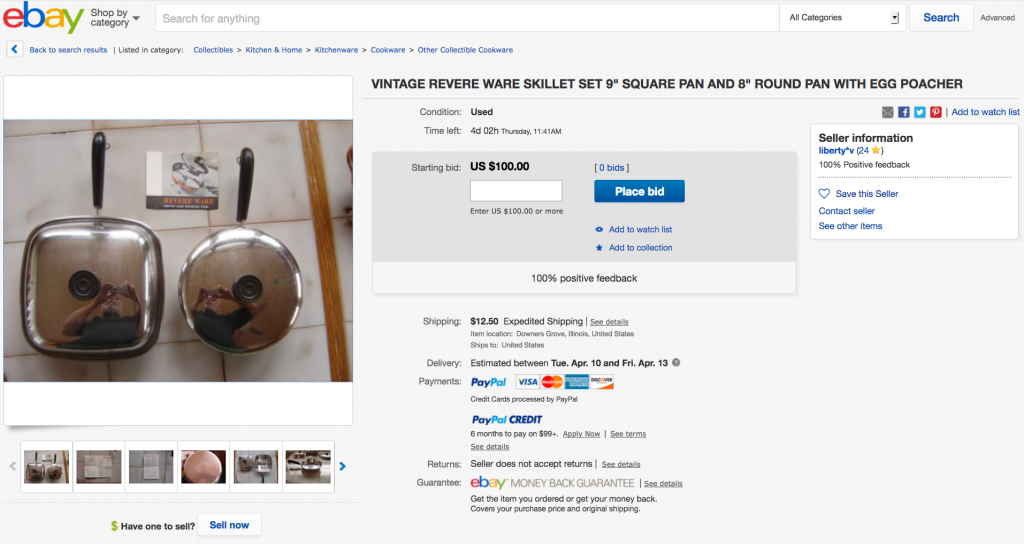
Square skillets are quite rare, and they typically list alone in the high 100 dollar range.
This weeks eBay deal includes two of my favorite items – the square skillet and a skillet with egg poaching insert.

Square skillets are quite rare, and they typically list alone in the high 100 dollar range.
While the prices are pretty high, seller belles*lettres sure does know how to present items for sale.

The staging of the items, from a photographic standpoint is just superb.
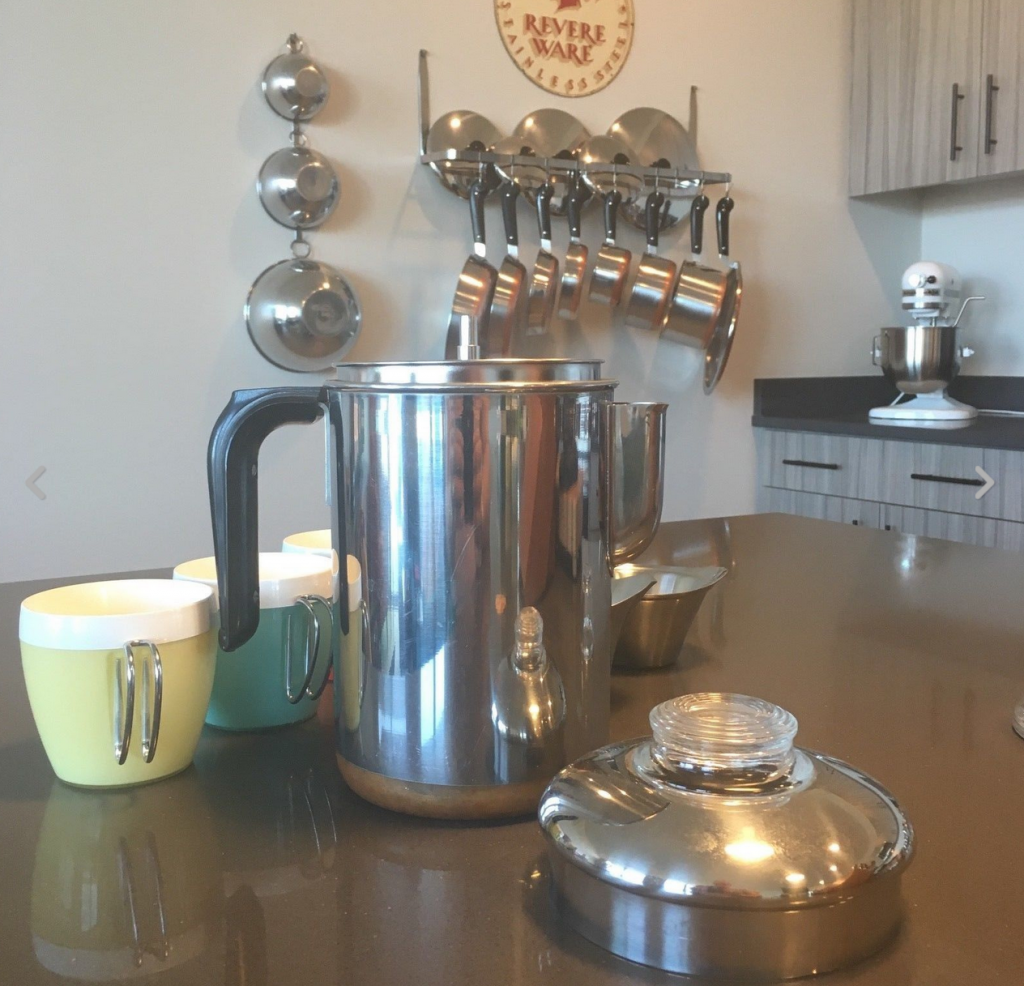
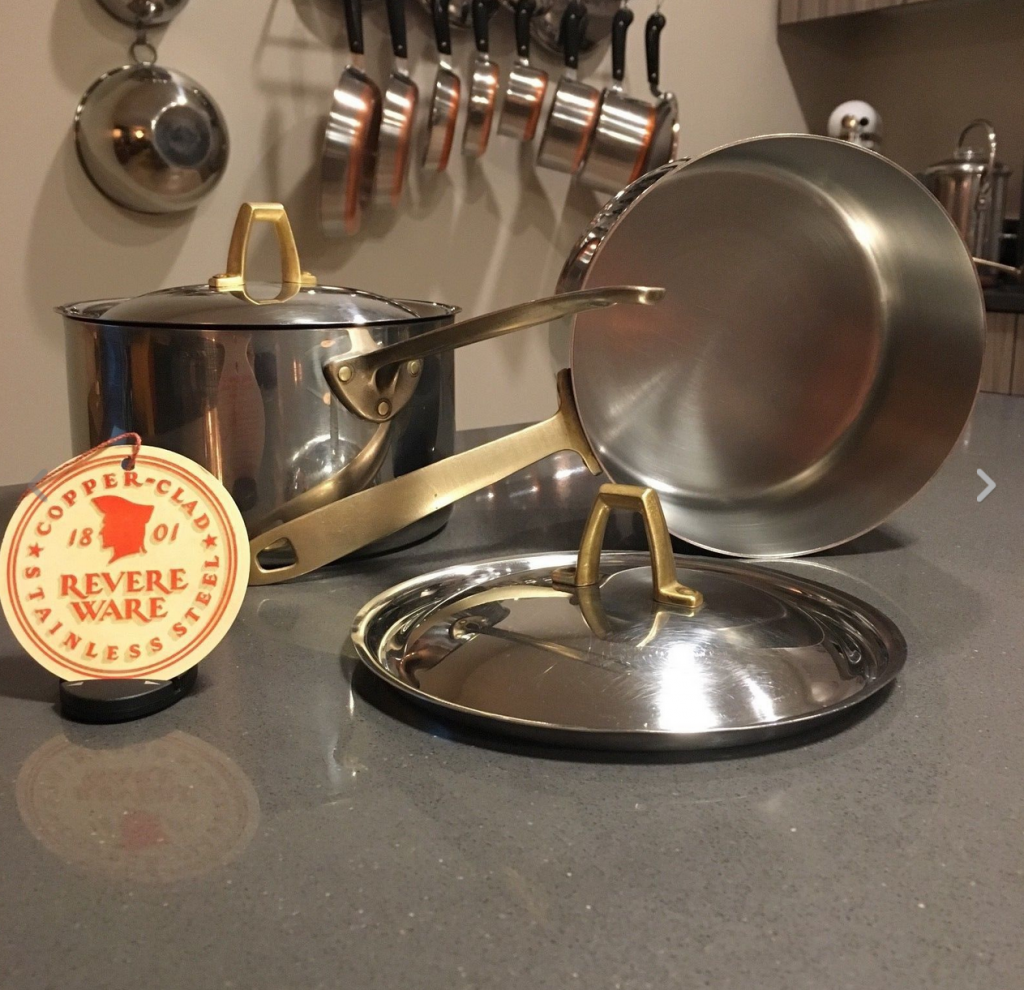
Customer Phil sent us photos of his unique Revere Ware sauce pan, the second one of this type he has seen. It has the process patent stamp on the bottom but has the handle of the post-1968 type cookware.
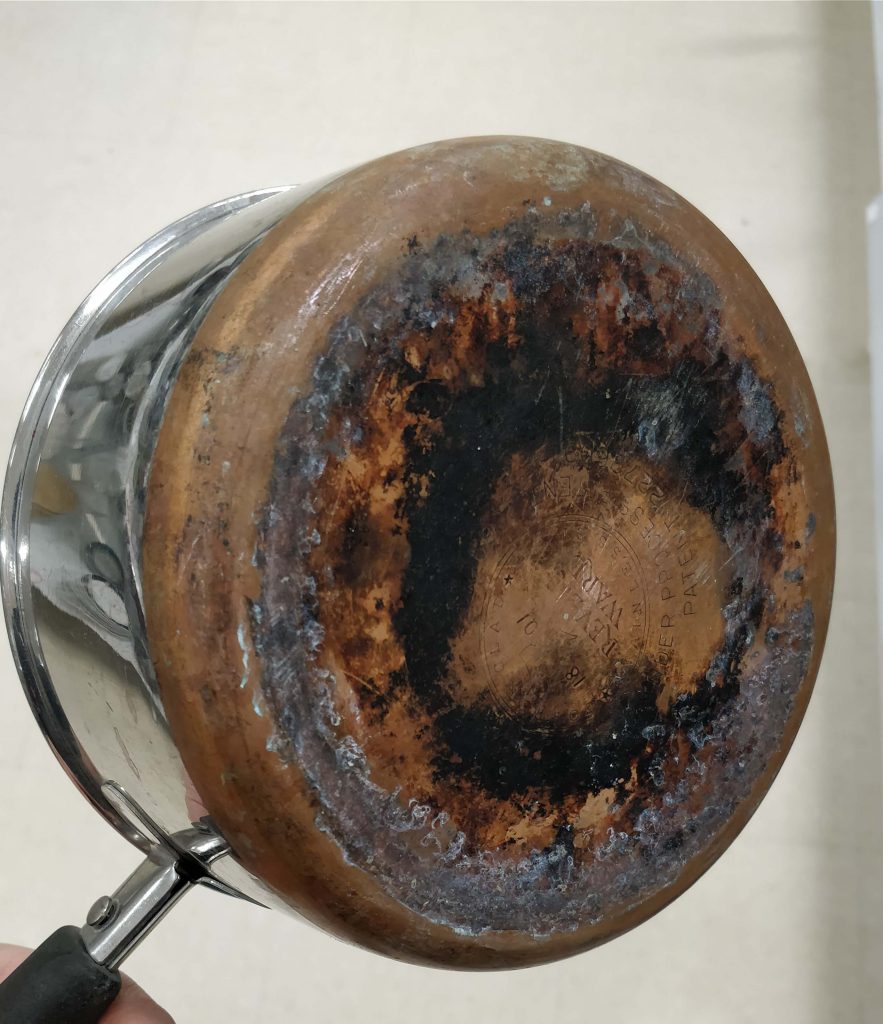
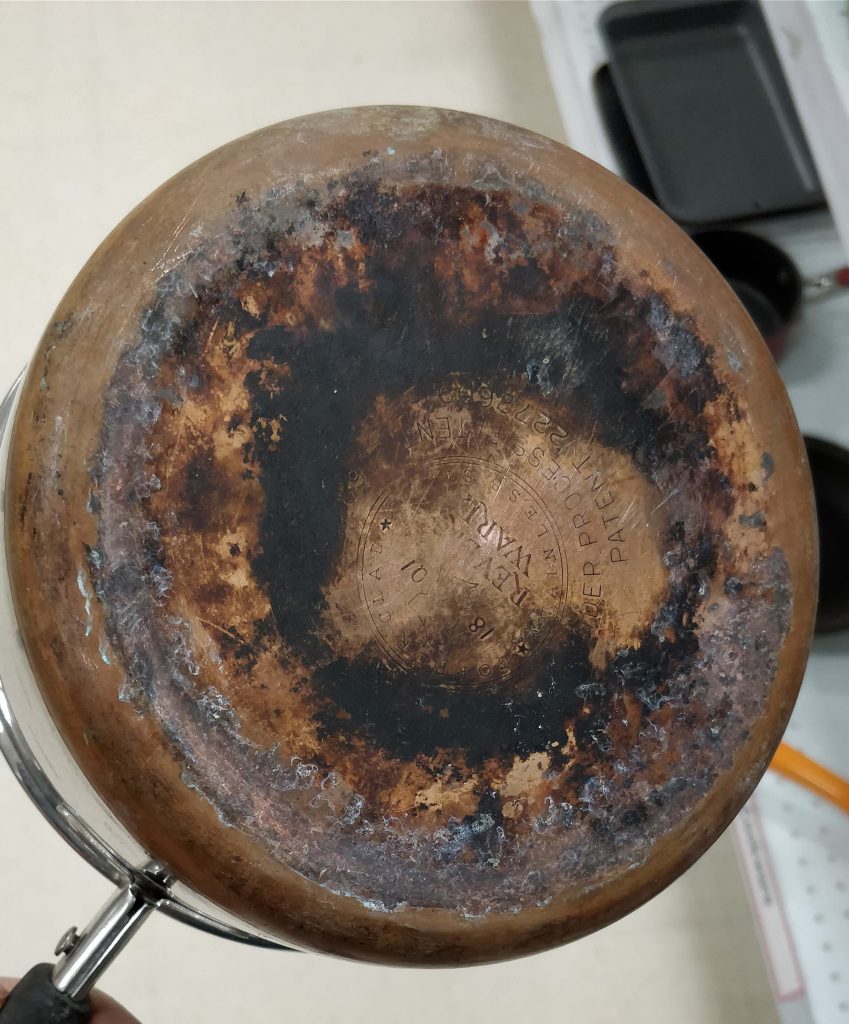
From my experience owning some 100 different Revere Ware pieces, and looking through thousands more on eBay and in thrift stores, I’ve never seen one of this type, so they must be pretty rare and unique.
My only guess is that perhaps this was an intermediate prototype that was developed internally to Revere Ware during the period of the transition, and taken home by an employee.
Anyone else have any unique pieces they want to share with the Revere Ware community? Please contact us and send us some pictures.
For a glimpse of what the market was like for Revere Ware replacement parts before we started selling them almost 10 years ago, take a look at this eBay listing:
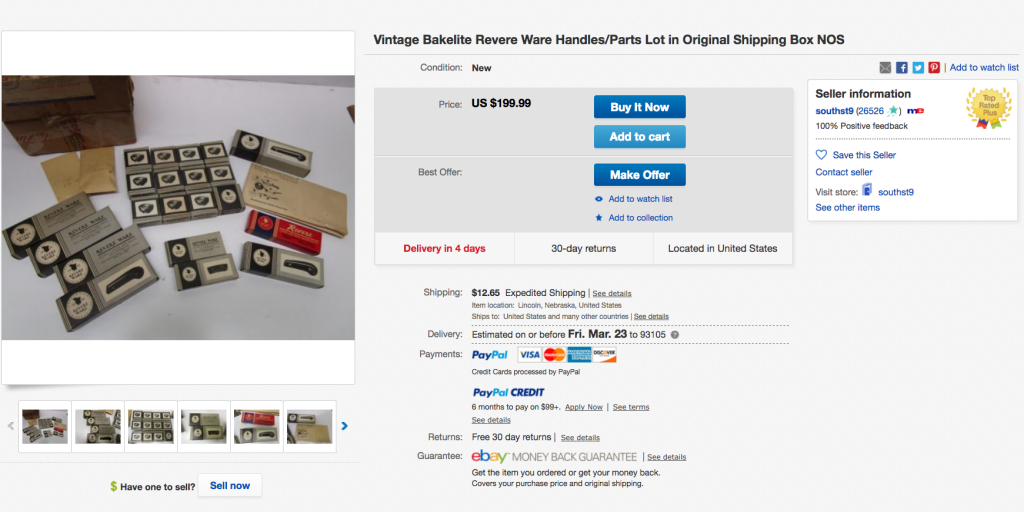
At $199.99 for 9 handles and 12 knobs, these parts are listed for about 33% more than we sell them for (about $150 for what is shown above).
Before our replacement parts were available, the few NOS (new old stock) parts available on eBay would often go for $20-$30, or 2-3 times what we sell our handles for.
If you’re looking for a good opportunity to grow your vintage (pre-1968) Revere Ware set, we’ve found the deal for you. Take a look at this auction for a 5-piece set, with 3 additional lids, for just $11 per piece shipped.
It may end up selling for more, but at the current price, it’s a steal.
A few months ago we wrote about the concept of seasoning stainless steel. It seems that this idea has become more widespread, which website Epicurious writing about it last year, and now Overstock.com has a big splashy page that instructs on stainless steel seasoning.
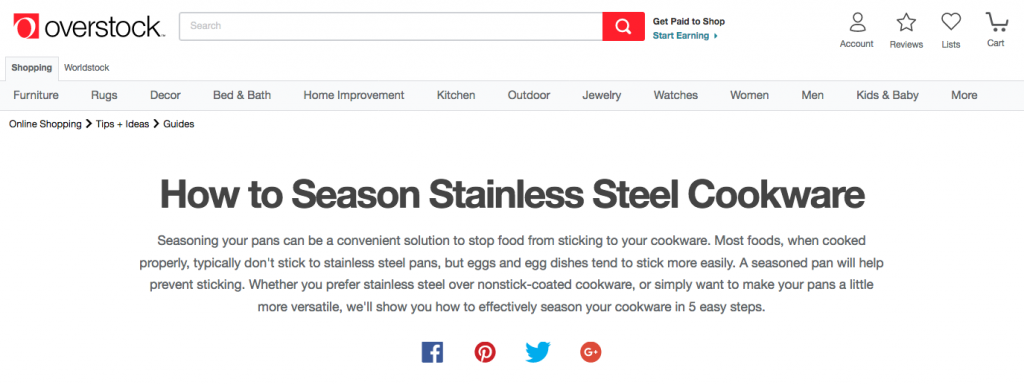
They also include this useful cooking tip, which I’ve noticed to be true even with my ceramic non-stick pans:
The best way to avoid sticking when cooking with stainless steel is to thoroughly preheat the pan before adding any ingredients. Preheating will help prevent hot or cold spots on the pan and will allow food to cook more evenly.
For instance, when I cook fried eggs in the morning, adding eggs to the pan before it is up to temperature, or if the cooking temp is too low, will almost always make them stick, even on a non-stick surface.
I’ve gotten so used to using the ceramic non-stick pans for all my non-stick needs, I haven’t yet tried seasoning a stainless steel one myself.
We have access to welding / brazing facilities and are going to try re-attaching one or more handles on Revere Ware cookware that have come off, like this:
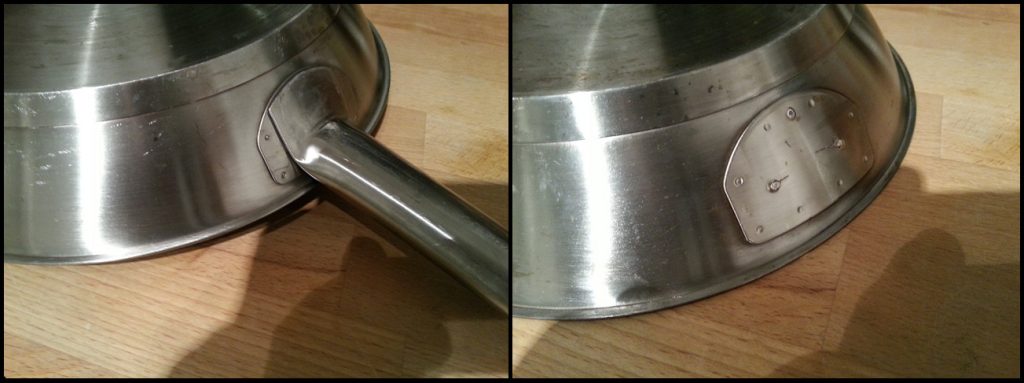
However, we don’t happen to have a pan with the handle separated to try it with. We are looking for two volunteers who are willing to donate their non-functional and separated pans for us to try to repair. If you have such a pan, please contact us to get instructions to send it in.
We can’t promise that the repair will be successful, or if it is, will look pretty. If the pan is ruined, we may not send it back.
We came across this article entitled How to Clean Pots and Pans You Thought Were Ruined the other day, and found some techniques that look promising.
Here are the ones we like the best:
Use ammonia to remove burnt on great on the bottom of your pans

Burnt on bottom grease is one of the most difficult things to remove, and I’ll admit, this looks simpler (if not more toxic) than our method of boiling a piece in a large pot with baking soda.
Use baking soda and hydrogen peroxide to clean baked on grease on your cookie sheets

Just yesterday I was scrubbing away with a Scotch Brite pad making little progress, so this seems really interesting.
Use a Magic Eraser to clean baked on grease on glass bakeware

I tend to use a Scotch brite pad here as well, which definitely can scratch the glass, so the Magic Eraser method is much better. I can’t help but think that this would work well on the outside of a tea kettle as well, which gets a lot of grease splatter.
